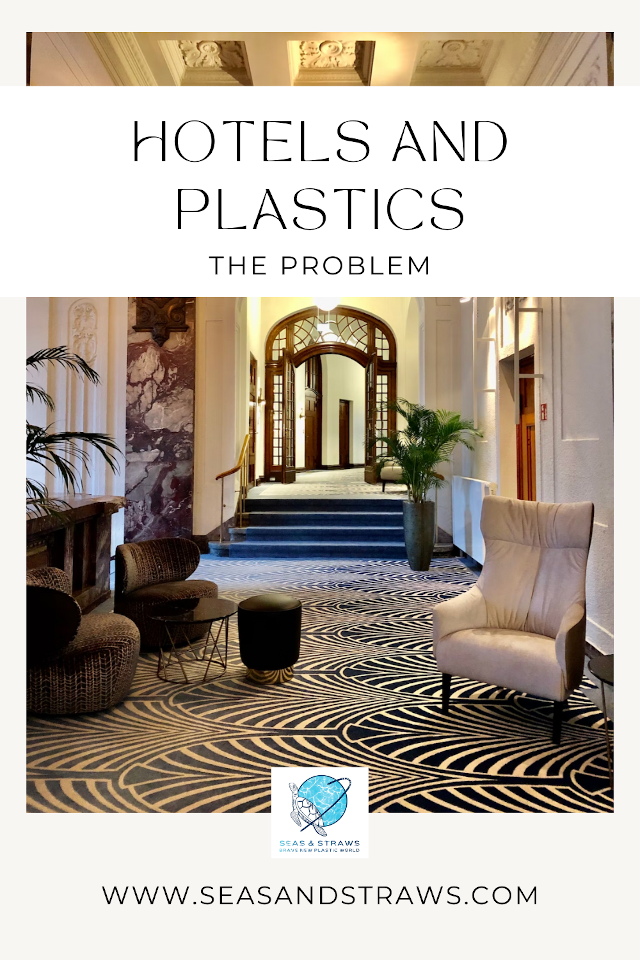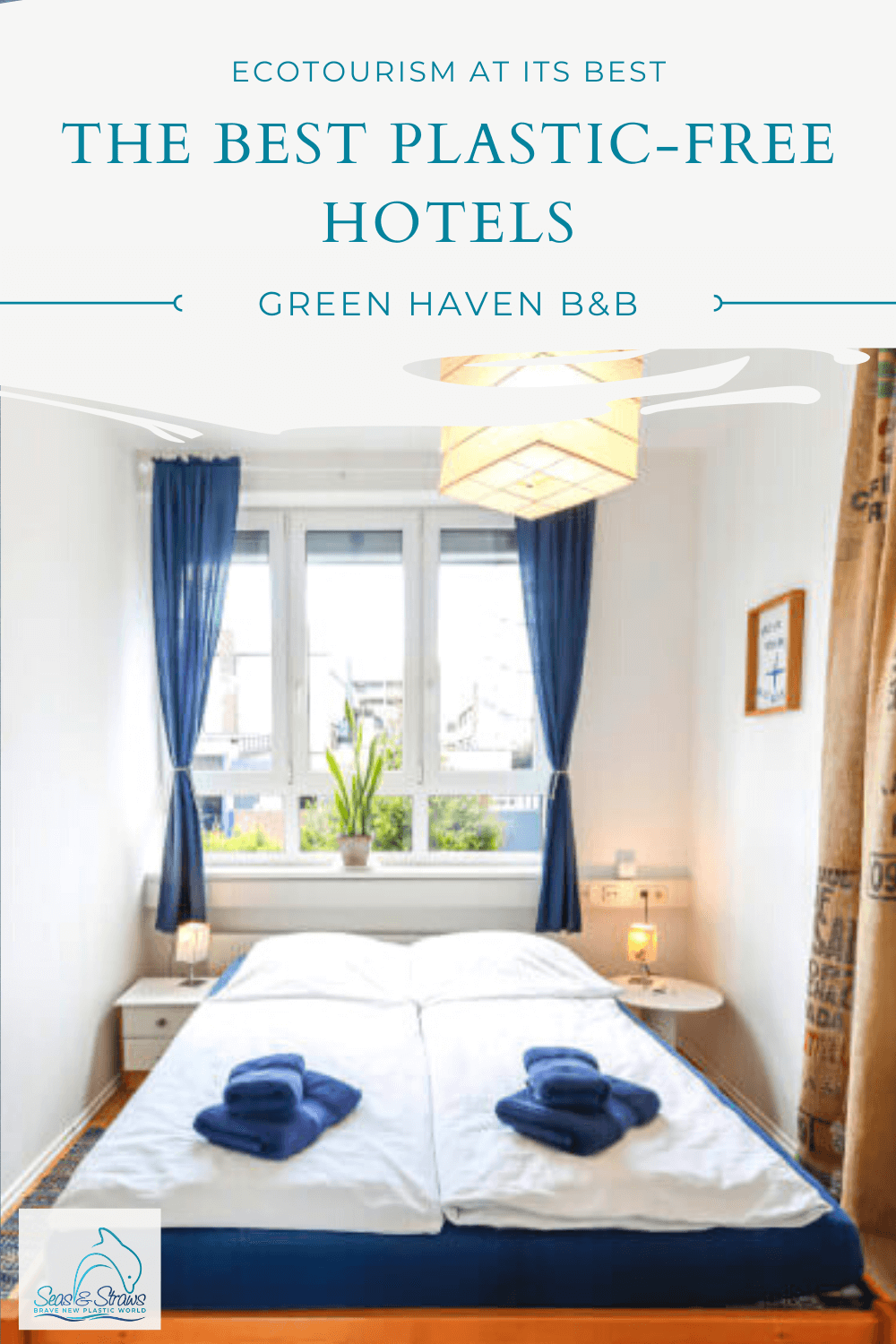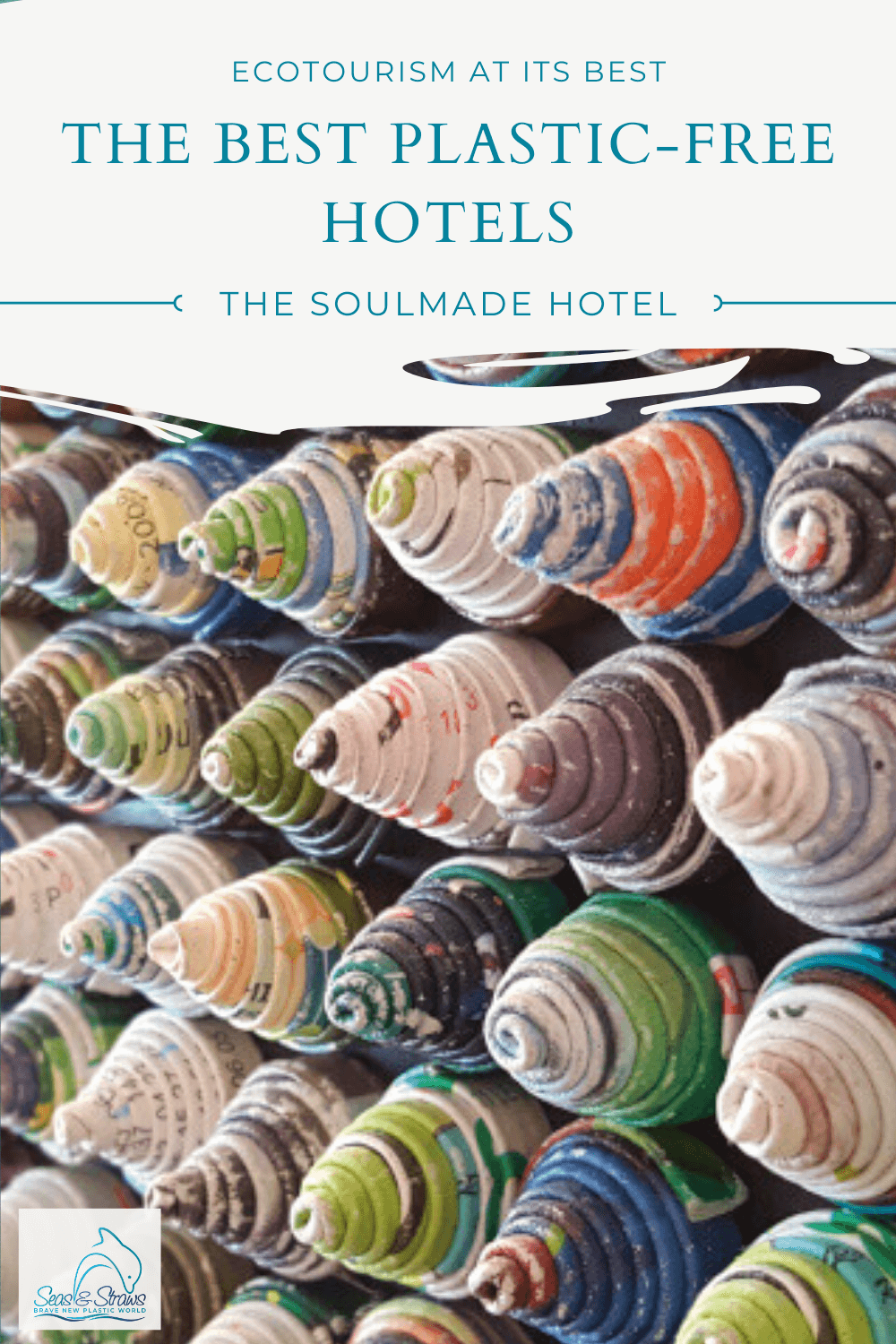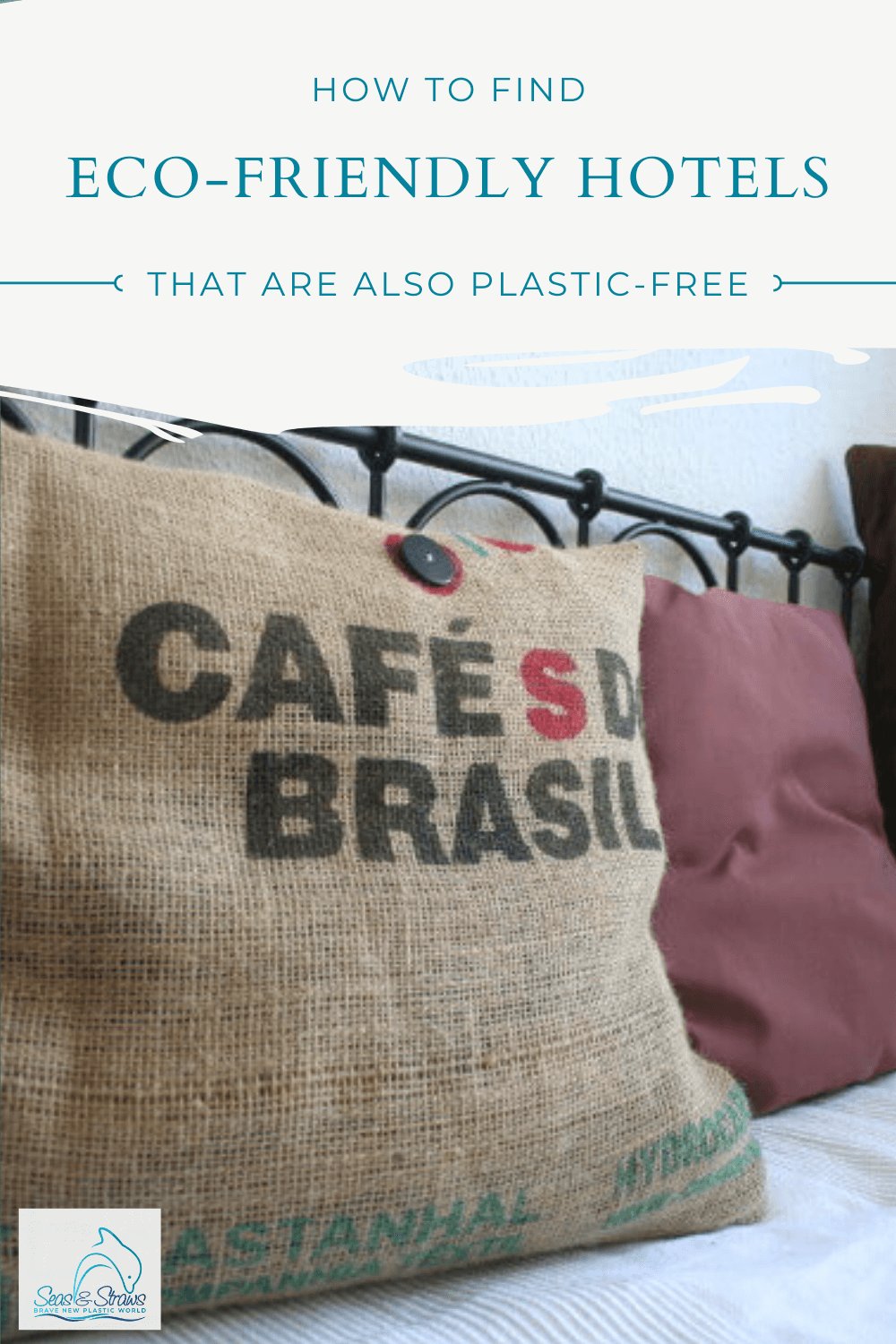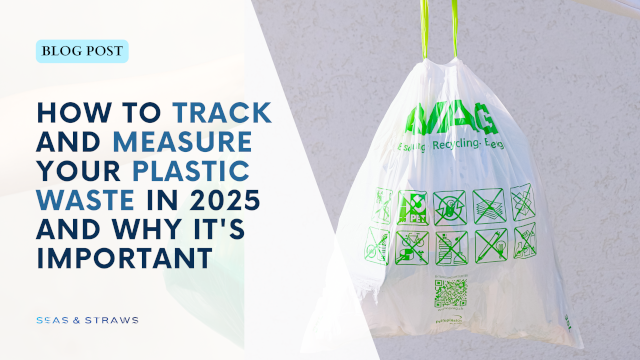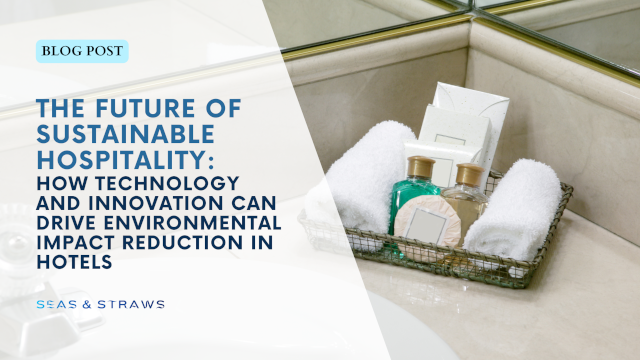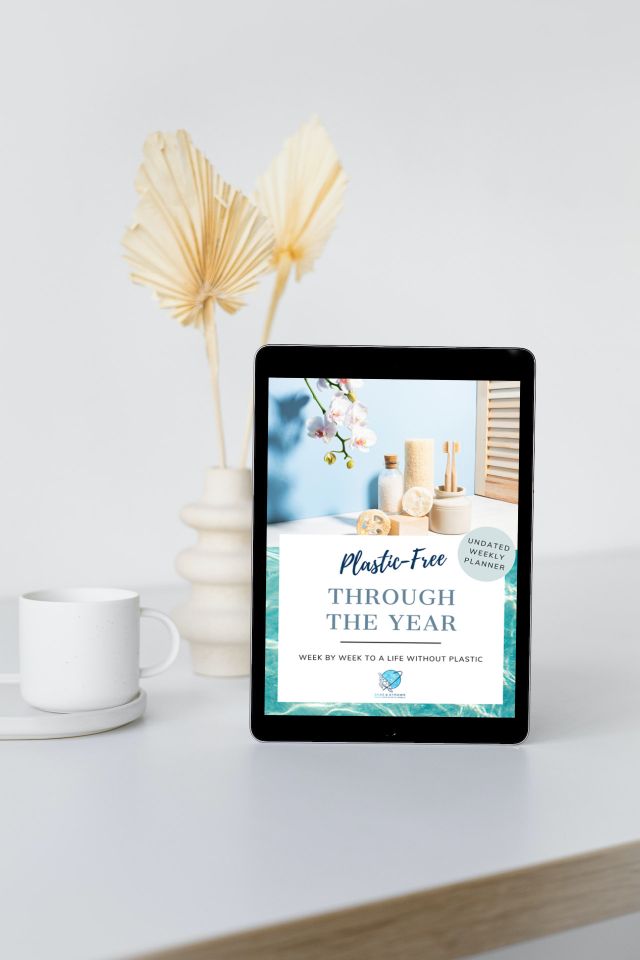- Home
- Hotels & Plastics
Hotels and Plastics: The Problem
The hospitality industry is a major contributor to the plastic pollution crisis, generating over 150 million tons of plastic waste each year (that’s 37.5% of the total annual plastic waste generated globally). With the ever-looming effects of plastic waste and the shift in consumer awareness towards sustainable, ethical business practices, it’s absolutely vital that hotels start moving towards a plastic-free system.
In this mini-series, Hotels and Plastics, I will show you how any hospitality business can differentiate themselves from others in the industry and attract the more eco-conscious traveler by implementing greener initiatives. Today, let’s look at the problem itself.
Plastic-Wrapped Convenience
The main selling point of hotels is that they cater to you hands down, so you don't even have to worry about yourself - from room service to providing everything you need to make your stay comfortable. This is compounded by our obsession with everything being (or appearing to be) hygienic. As a result, hotels use plastic to give the impression that these amenities are brand new, hygienic, and exclusively for guests.
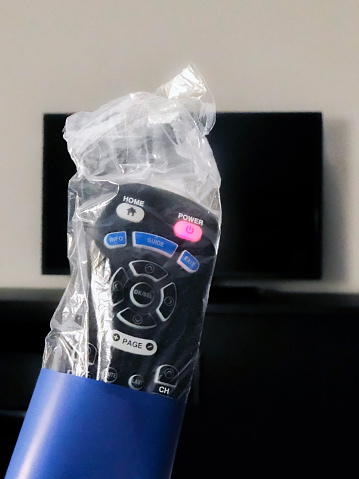 A TV remote ...
A TV remote ...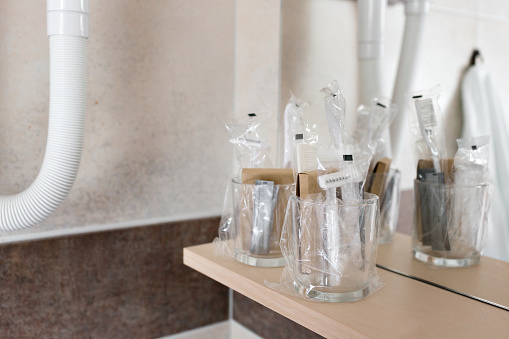 ... and bathroom amenities wrapped in plastic.
... and bathroom amenities wrapped in plastic.Plastics are also extremely practical, lightweight and strong. Disposing of them in the trash or recycling makes cleanup quick and easy, which is convenient for travelers.
But these value-added conveniences come with an environmental price tag: single-use plastics, which are not biodegradable, are widely used because they are quick, easy and inexpensive to use. They range from small packaged plastic bottles of shampoo, conditioner, shower gel and disposable soaps to plastic razors, cotton swabs, cups, stirrers and water bottles.
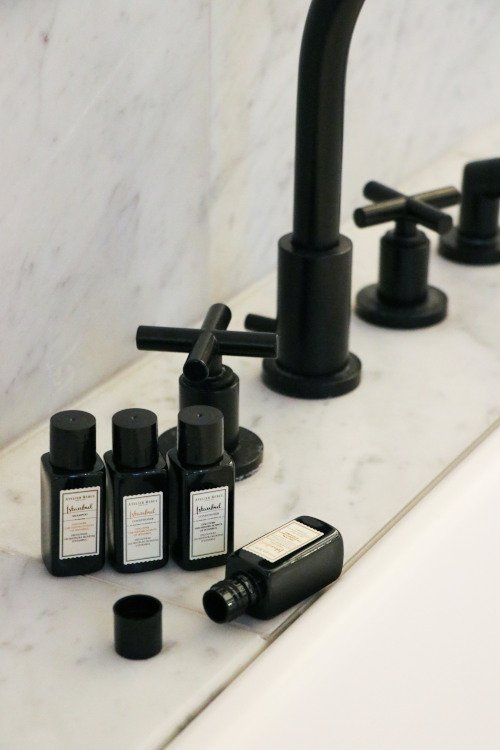 Small shower gel and shampoo bottles are a popular amenity in hotels.
Small shower gel and shampoo bottles are a popular amenity in hotels.Hotel Restaurants
Plastic is also ubiquitous in hotel restaurants. Whether it's in-room dining or take-out, products such as plastic straws, stir sticks, plastic cutlery, disposable cups, water bottles, Styrofoam food packaging, and sachet and condiment packets are used and consumed daily.
Even though some hotels are now adopting more environmentally friendly practices by switching out plastic goods for paper-based or recycled ones, many hotels still haven't made the transition to sustainability and integrated this strategy across their operational procedures.
Hotels and plastics: where the journey leads
Transitioning to plastic-free alternatives can be expensive in the short term. These upfront costs are mostly associated with making the transition feasible - determining current plastic costs, searching for suitable alternatives, procuring the alternatives, which are usually more expensive, and training staff to use them.
In the long run, however, you end up cutting costs because you don’t need to buy these amenities as frequently, and you eliminate waste disposal costs. Plus, the green image is more likely to attract environmentally conscious travelers (which surveys show is now over 70% of all travelers).
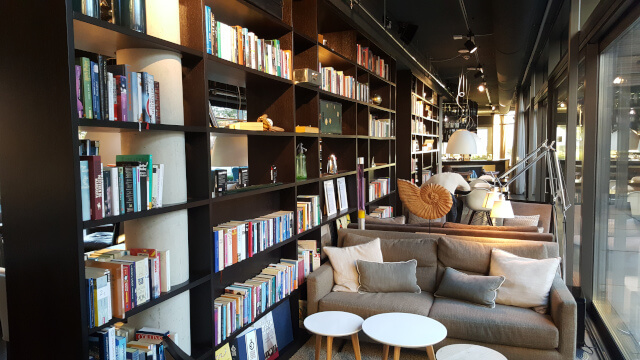 The lobby of a plastic-free hotel in Munich. Going plastic-free saves you money and attracts more travelers.
The lobby of a plastic-free hotel in Munich. Going plastic-free saves you money and attracts more travelers.In the 2nd part of this series, Hotels And Plastics: Going Plastic-Free, I will show you simple solutions how to avoid plastic in the hospitality industry. All ideas are easy to implement and will make your hotel or guesthouse more sustainable in no time.
The third and last part, Hotels And Plastics: The Best Plastic-Free Hotels Of 2023, gives you a list of the best sustainable hotels I could find. Enjoy!
You can be featured on my website!
I'd be happy to feature you on my website. If your venue is sustainable or plastic-free and you want me to write about it or to interview you, send me a message on jana@seasandstraws.com! I look forward to reading from you.
Want to make your hotel or guesthouse sustainable, too, but not sure where to start?
If you want to make your hotel or guesthouse sustainable as well but aren't sure where to start, I'd love to help you! Email me on jana@seasandstraws.com. In the meantime, check out my comprehensive blog post on my services for The Plastic-Free Hotel Revolution, here!
